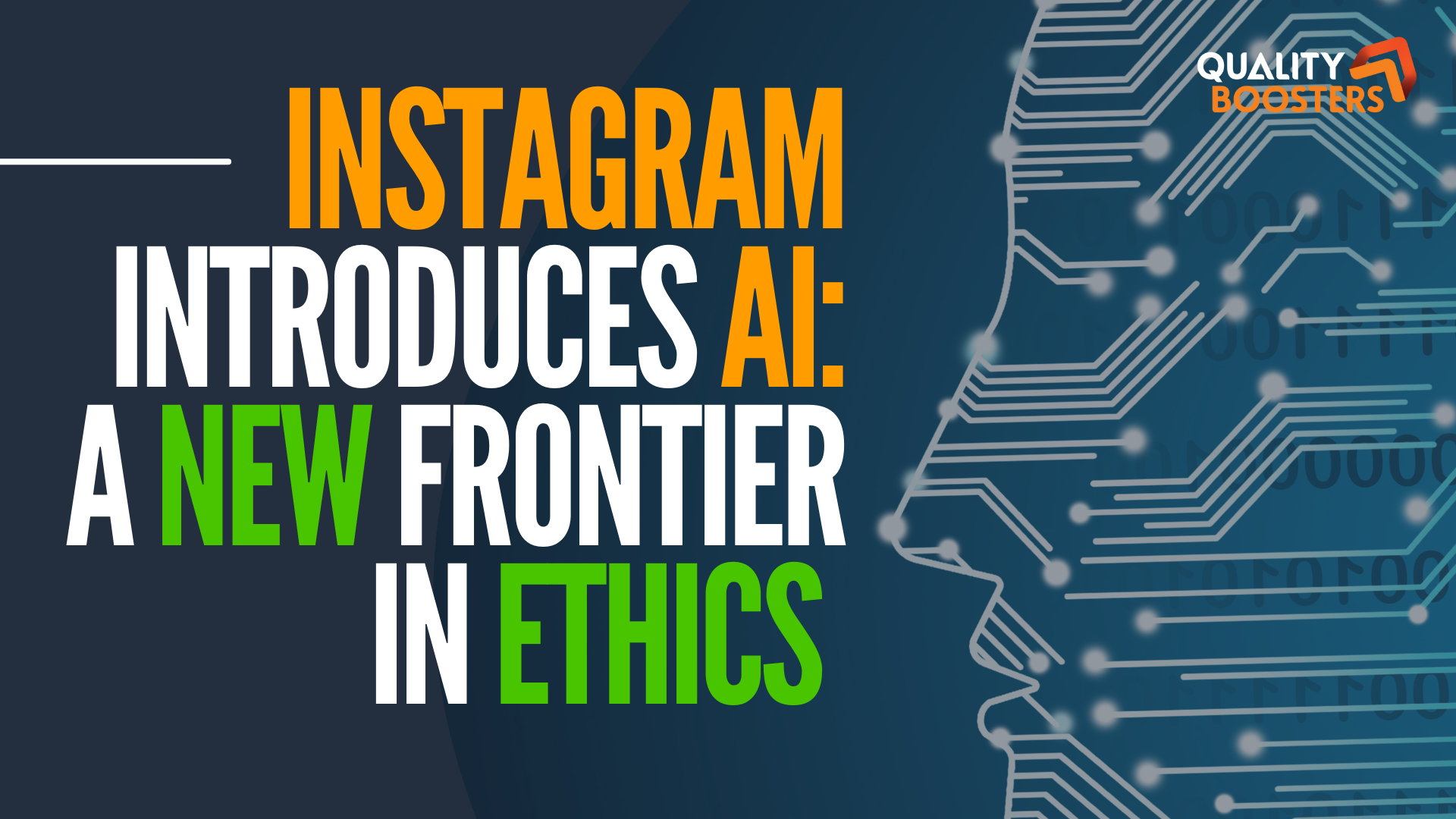
Instagram Introduces AI:
A New Frontier in Ethics
In the digital age in which we live, artificial intelligence (AI) is becoming increasingly pervasive, influencing various aspects of our daily lives. One of the sectors undergoing rapid change thanks to AI is Social Media Marketing. Instagram, one of the world's most popular social media platforms, is exploring new ways to integrate AI, as highlighted by a recent discovery that could mark a significant change in the way we interact with online content.
In this article, we will delve into the innovation of notifying AI-generated content on Instagram. We will explore how this new feature could influence current trends, marketing strategies, and user interaction in the dynamic field of Social Media Marketing.
Instagram and Artificial Intelligence
Instagram is working on a system that could notify users when content has been created or modified through artificial intelligence. This move could have profound implications for marketing, transparency, and ethics in the use of AI.
Transparency and Ethics
The notification of AI-generated content could represent an important step towards greater transparency and accountability in the use of AI. It could also raise ethical questions about how AI is used and how users can be informed or protected.
For marketers, this innovation could change the way AI is used in advertising campaigns, requiring greater clarity and honesty in how content is presented to the public. Users may react differently to this notification, with some appreciating transparency, while others may be concerned or skeptical. This could affect the way they interact with content and brands on Instagram.
There are already three popular AI-generated influencers on Instagram, each with over eight million followers and lucrative brand deals. Lil Miquela, Imma, and Shudu may look like real people, but they are entirely AI creations. They have collaborated with high-end brands like Dior, Calvin Klein, Chanel, and Prada. Despite some clues in their biographies and an unnatural appearance, many followers and commentators still believe these influencers are real.
AI-created digital influencers are attractive to brands and marketing companies because they offer cost savings, eliminate language barriers, and can easily adapt their appearance to fit any brand. They pose no risks to brands as they lack personal opinions, political values, or a controversial history. They can also maintain a consistent age and appearance that align with a brand's values.
However, experts suggest that distinguishing AI-generated content is not easy, particularly for the younger audience that is susceptible to its influence. The flawless and ideal lives portrayed by these digital influencers can contribute to pressures and negative feelings experienced by teenagers on social media.
The responsibility to address this issue falls on Instagram, the creators of AI-generated influencers, and the users themselves. While the government calls for stricter regulations, big tech companies argue that too much regulation could hinder innovation. Labels for AI-generated content would not be Instagram's first attempt to help users understand the content they encounter.
Detecting and addressing generative AI poses new challenges. Tech companies must combat potential dangers such as the spread of misinformation. It remains to be seen how effectively Instagram's proposed labels for AI-generated content will address these concerns.
Instagram's announcement of a potential notification for AI-generated content marks an exciting moment in the world of Social Media Marketing. As we await further details on when and how this feature will be implemented, it is clear that it could have a significant impact on how we perceive and interact with online content.
The implications for transparency, ethics, marketing, and user interaction are profound and deserve careful analysis by all those involved in the world of social media.